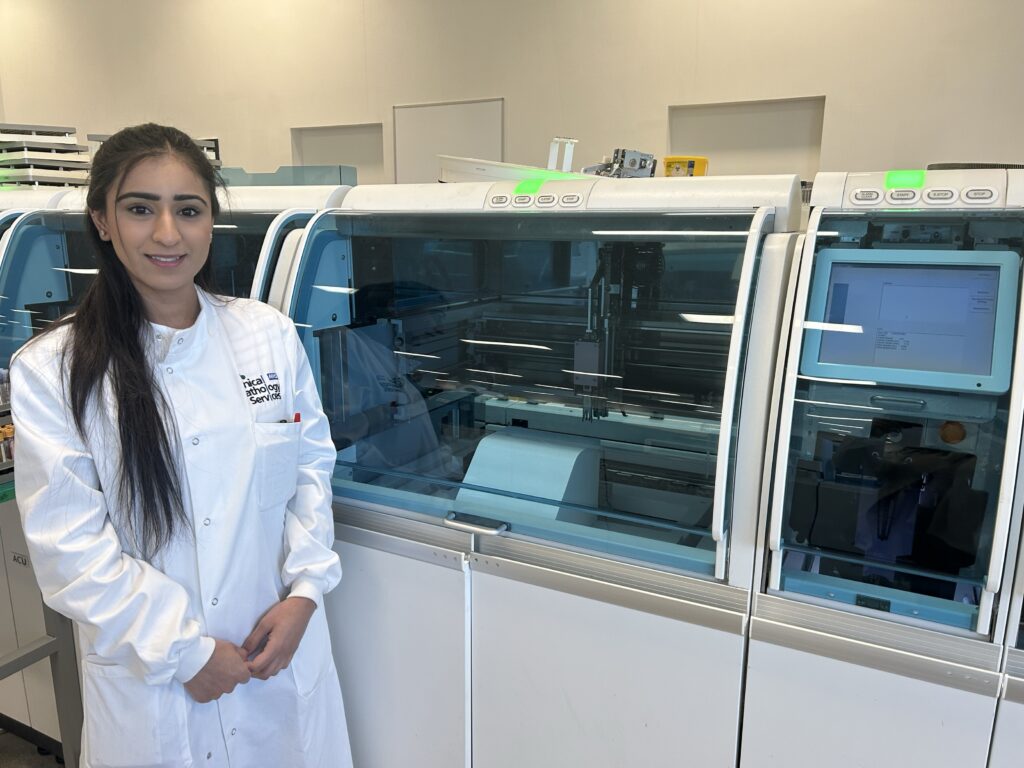The pathology department at the Queen Elizabeth Hospital provides services across Gateshead, Sunderland, and South Tyneside. Since the formation of South of Tyne Pathology services in 2014, the department has further developed its bowel cancer screening programme as well as taking on the cervical screening programme in 2019. It provides cervical screening and bowel screening across the whole of the North East and Yorkshire.
There are several different disciplines/specialities, which include Biochemistry, Haematology, Immunology, Microbiology, Cellular pathology, Point of Care and the mortuary service. Our workforce is made up of 400 people who are specialised scientists in these areas. This ensures that patients are getting the best possible diagnosis promptly.
Anisa Ali, Senior Specialist Biomedical Scientist tells us more about her role and the service:

“I have worked at Gateshead Health since 2016 originally on placement as part of my degree. Once I completed my degree, I returned to the Queen Elizabeth Hospital as a full-time biomedical scientist. The Trust has been supportive of my career progression by helping me complete my specialist portfolio and later funding my masters, which has led to becoming a senior specialist.
Day to day we are analysing samples coming to the lab from across Tyne and Wear, other than this, we also release patient samples and help colleagues with diagnosis and prognosis. A typical day is 9am-5pm for most but the department works on a shift rota as it is such an essential service that is required 24 hours a day, 7 days a week 365 days a year. Other activities involve, setting up analysers, quality control checks, research, and development, which we fit into our day.
My role also involves the departmental management of Gateshead as well as, Sunderland and South Tyneside laboratories. This is because we work across all three labs to process patient samples. I enjoy everything about my job, despite its challenges, the Queen Elizabeth Hospital is a great place to challenge yourself and learn something new every day.”
Richard Hardy, Quality and Service Improvement Manager comments on the future of the service:
We would like to make the process more automated and specialise in more areas that we don’t do currently while improving turnaround times.
Richard Hardy, Quality and Service Improvement Manager
Pathology services are an essential part of the efficient and safe running of a hospital, analysing thousands of tests for patients every day. In fact, pathology is involved in more than 70% of all diagnoses made by the NHS.